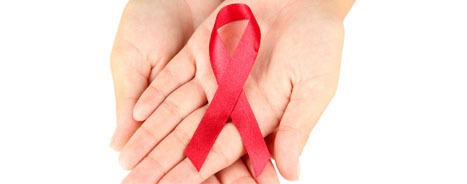Raising Awareness of HIV in the Asian Community

Having first been officially recognised in the 1980s, HIV/AIDS has become a global pandemic that still has no cure. Approximately 100,000 people carry the disease in the UK, whilst global figures reach up to a staggering 34 million. Although advances are being made in medical treatment there is still a long way to go in terms of eradicating stigma, preventing spreading infection and more importantly informing people about the facts of the fatal disease. Awareness is raised on the illness annually in December; we at The Asian Today want to explore the sensitive subject of HIV/AIDS in the British Asian community.
HIV stands for Human Immunodeficiency Virus and is spread primarily through unprotected sex, sharing infected needles or a HIV-positive mother passing the virus onto her child. The virus attacks the immune system thereby weakening the body’s ability to fight infections and diseases. AIDS (acquired immune deficiency syndrome) is the final stage of the HIV infection where the body can no longer fight against life-threatening illness. There is no cure as of yet for HIV/AIDS but treatment is available to allow people with the disease to live a long and healthy life.
When it comes to health issues in the South Asian community afflictions such as heart disease or diabetes are commonly known, but how often is the subject of sexually transmitted diseases (STDs) brought up? Sex has always been a taboo subject amongst Asians meaning promiscuity, infidelity and sex outside of marriage are frowned upon. However times are changing, some of today’s generation of British Asians are sexually active before marriage and more open about their sexual orientation. This is why it may be vital that information on STDs such as HIV/AIDS is made available.
A University of Cambridge article, ‘Public honour, private shame and HIV: issues affecting sexual health service delivery in London’s South Asian communities’, outlines the cultural factors that prevent Asians from safeguarding themselves against STDs. It states there is a shared denial of the disease in the South Asian community preventing individuals from attending HIV test screenings. As a result, gay South Asian men compared to other ethnic groups are less likely to test themselves for HIV, this hinders the official recording of HIV cases in UK statistics. Although the number of HIV diagnoses of Asian men and women has risen from 131 cases to 304 cases between the years of 1995 to 2013, even these statistics are not fully reliable as many British Asian citizens have not come forward to have themselves tested.
South Asian sex workers in Britain also avoid purchasing contraception or seeking help for fear of being recognised by a community member. Women who are unaware they can see a female doctor simply avoid seeing any doctor over issues of sexual health, there is even fear that they will be judged and information will be revealed to the community. Surita, a young student from Birmingham shared this worry,
“It would be really embarrassing and uncomfortable for me to discuss the options available as I felt he [doctor] could tell my parents. I was just scared… they were going to find out. It is the same for walking in to my family clinic; I’m worried if I see an ‘aunty’ or someone my family knows. I don’t want to bring shame on my family.”
Factors such as language barriers also prevent South Asian immigrants from seeking important health care. In a briefing by the University of Oxford ‘Health of Migrants in the UK’, immigrants face obstacles such as lack of knowledge on the health care system, limited English and insufficient translating services.
Another major factor is the power dichotomy in married life where women are not in charge of their own sexual health. A recent study titled ‘Sexual and reproductive health of South Asians in the UK’, revealed that non-professional Asian women had little knowledge on contraception and their decisions were influenced by their husbands, extended family and cultural expectations of fertility. The significance of this is contraception being a key method of preventing the spread of STDs. Adding to this, South Asian women in abusive relationships may be at greater risk because abusive men reportedly have sexual partners outside of marriage and are likely to spread infection to their wives.
In order to prevent an increase of HIV cases in the British Asian community, the veil needs to be lifted on talking about the disease. We must erase this fear of acknowledging HIV and promote sexual health amongst all Asians whether male, female, gay or straight. Makinder Chahal, a support worker at Trade Sexual Health in Leicester, gives his take on the issue,
“It’s about tackling the stigma that HIV only affects gay or bisexual people as it can affect absolutely anybody, gay and bisexual people are just at higher risk. Everyone must get tested as long as you are sexually active, regardless of whether they are LGBT or heterosexual. It will actually be ‘National HIV testing week’ from 22nd-30th November which is open to everybody, but the two high risk groups they are targeting are men who have sex with men (MSM) and the Black African community. During that week there will be lots of opportunities to get tested in your local area. It is a matter of people knowing where to get tested as people tend to worry that going for a HIV test means being put on a medical record. What we always encourage people to do is contact charities such as ourselves where they do rapid HIV testing where you can get results in up to 20 minutes, they can also go to their local GUM (genitourinary medicine) clinic to get tested. It will be done confidentially and won’t be put on your medical record. Specific HIV, LGBT and sexual health organisations out there will do a variety of tests as well.”
Latest statistics from the 2014 UK HIV report (Public Health England):
- A quarter of people are estimated to be living with HIV but are unaware that they have it
- 59,500 heterosexual people are living with HIV
- Manchester has the 2nd highest prevalence of diagnosed HIV outside of London (5.76/1000). 5th is Slough (3.69/1000), 6th is Leicester (3.53/1000), 9th is Coventry (3.12/1000), 13th is Wolverhampton (2.63/1000), 14th is Birmingham (2.54/1000), 15th is Nottingham (2.41/1000), 17th is Sandwell (2.25/1000), 18th is Bedford (2.17/1000)
- Asian people living with HIV are not classed as a high risk group, however there are Asian people in the men who have sex with men group so it is still vital the Asian community are aware of the disease
Organisations that provide support and information on HIV and sexual health include:
Trade Sexual Health
www.tradesexualhealth.com
0116 254 1747
NAZ
www.naz.org.uk
020 8741 1879
World Aids Day
www.worldaidsday.org
HIV Aware
www.hivaware.org.uk

































